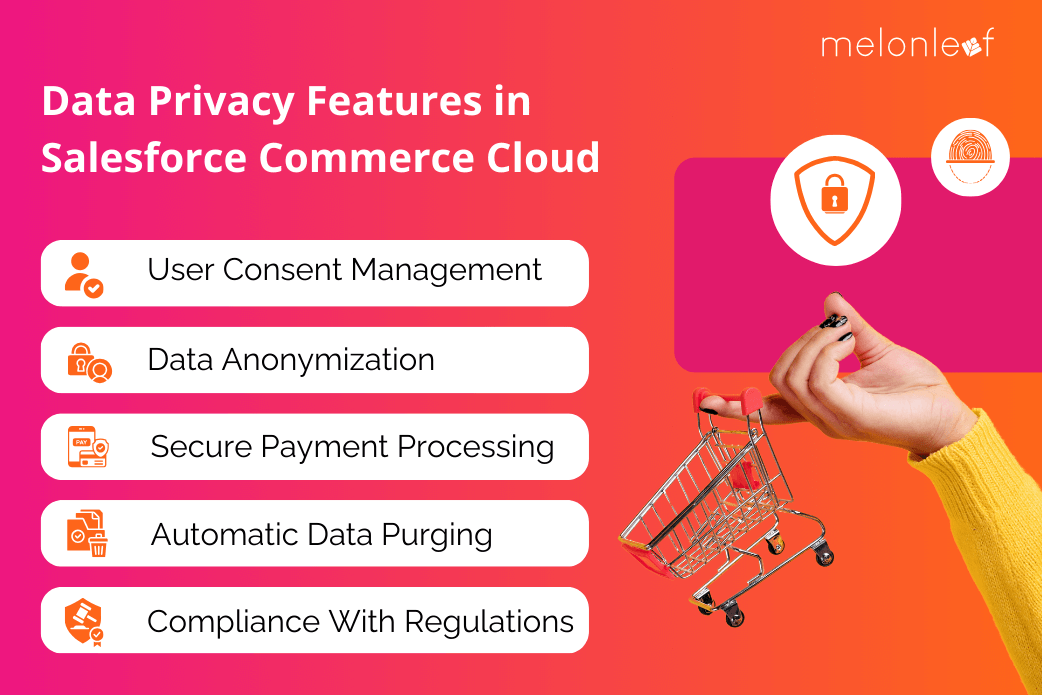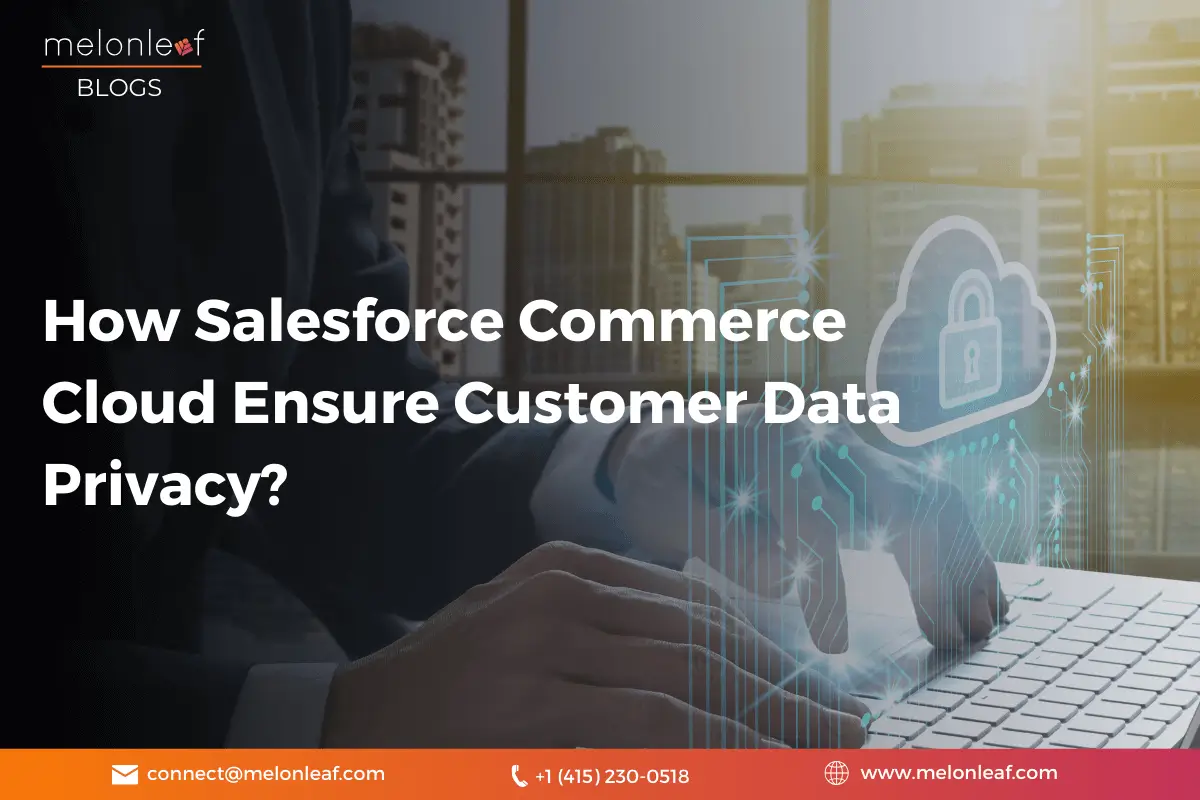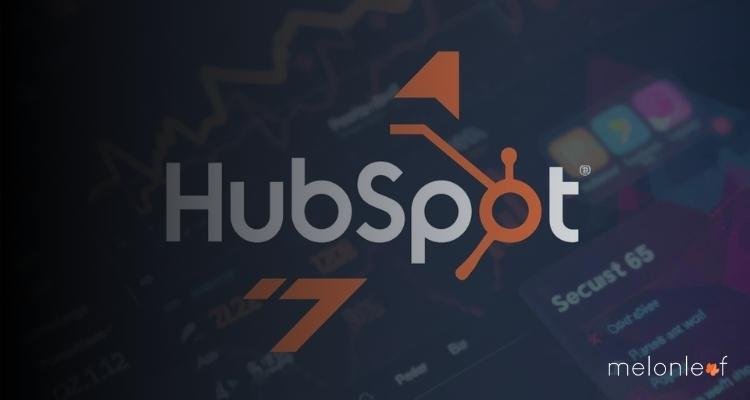In a world where every click, search, and purchase leaves behind a digital trail, the safety of customer information is more important than ever. When shopping online, people trust businesses with their data like names, addresses, payment details, and even preferences. This trust is not something to be taken lightly. If mishandled, it can lead to breaches that shake confidence and damage reputations beyond repair.
Among the many platforms that power online stores, Salesforce Commerce Cloud stands out as one that values security just as much as sales. It doesn’t just build digital storefronts; it creates a stronghold where customer data remains protected.
Why Customer Data Privacy is critical in E-Commerce?
Online shopping has transformed how people buy products. With just a few clicks, they can order groceries, clothing, electronics, and even luxury goods from the comfort of their homes. But this convenience comes with risks. Every online transaction involves personal and financial data, making e-commerce platforms prime targets for cyberattacks.
Risks of Poor Data Privacy Measures
- Identity Theft and Fraud: If sensitive data falls into the wrong hands, hackers can misuse it to commit fraud, make unauthorized transactions, or even impersonate customers.
- Loss of Customer Trust: A single breach can make customers hesitant to shop from a business again. When trust is broken, even years of brand-building can’t undo the damage.
- Legal and Financial Consequences: Data protection laws like GDPR (General Data Protection Regulation) and CCPA (California Consumer Privacy Act) impose strict penalties on businesses that fail to protect customer data.
A brand that prioritizes data security not only avoids these risks but also strengthens customer relationships by showing it values their privacy.
Understanding Salesforce Commerce Cloud
Salesforce Commerce Cloud is more than just an e-commerce platform. It is a secure, cloud-based solution designed to provide businesses with the tools they need to sell online while keeping customer data safe.
A detailed Salesforce Commerce Cloud Guide explains how the platform supports businesses with scalability, AI-driven insights, and secure data management.
Here’s how it creates a secure environment:
- A cloud-based infrastructure that reduces risks associated with local data storage.
- Regular security updates to combat emerging threats.
- Robust access controls that limit exposure to sensitive data.
By prioritizing security, Salesforce Commerce Cloud gives businesses the confidence to grow while keeping their customers protected.
How Salesforce Commerce Cloud Protects Customer Data
Salesforce Commerce Cloud adopts a multi-layered security approach, combining advanced encryption, authentication protocols, and monitoring tools to protect sensitive information.
1. Encryption: Securing Data in Transit and at Rest
Encryption makes sure that even if customer data is intercepted, it remains unreadable. Salesforce Commerce Cloud:
- Uses AES-256 encryption, a gold standard for securing sensitive data.
- Protects information both in transit (during transactions) and at rest (when stored on servers).
For example, when a customer enters credit card details, the data is immediately encrypted before it travels through the network, preventing cybercriminals from accessing it.
2. Multi-Factor Authentication (MFA): Strengthening Access Control
Passwords alone are no longer enough to protect user accounts. With multi-factor authentication (MFA), Salesforce Commerce Cloud requires additional verification steps, such as:
- A one-time code is sent to the user’s phone
- Biometric authentication like fingerprint scanning
By adding an extra layer of security, MFA significantly reduces the risk of unauthorized access.
3. Role-Based Access Control: Limiting Internal Data Access
Not every employee needs access to sensitive customer data. Salesforce Commerce Cloud allows businesses to assign specific roles and permissions, ensuring only authorized personnel can access certain information.
For example:
- Customer service agents may only view basic order details, not full payment information.
- Finance teams can access billing data, but not customer browsing history.
This structured access control reduces internal data exposure and minimizes security risks.
4. Real-Time Threat Monitoring and Automated Alerts
Salesforce Commerce Cloud continuously scans for suspicious activities, such as:
- Unusual login attempts from different locations
- Multiple failed password attempts
- Suspicious transactions with high-value purchases
If a threat is detected, automated alerts notify businesses immediately, allowing them to take action before any damage is done.
Data Privacy Features in Salesforce Commerce Cloud
Beyond encryption and monitoring, Salesforce Commerce Cloud includes built-in privacy features that give businesses better control over how customer data is collected, stored, and used.

1. Customer Consent Management
Privacy laws require businesses to obtain customer consent before collecting or processing personal data. With Salesforce Commerce Cloud, businesses can:
- Customize privacy policies based on global regulations.
- Allow customers to opt in or opt out of data collection.
- Store consent records for legal compliance.
2. Data Anonymization & Pseudonymization
Businesses can analyze customer behavior while protecting privacy by:
- Anonymizing data, which removes identifiable details.
- Pseudonymizing data, replacing real information with artificial identifiers.
This allows companies to track trends without exposing individual customer details.
3. Secure Payment Processing (PCI DSS Compliance)
Salesforce Commerce Cloud follows PCI DSS (Payment Card Industry Data Security Standard), ensuring all payment transactions are:
- Encrypted before processing
- Not stored in plain text
- Processed through secure gateways
Customers can shop without worrying about their credit card information being exposed.
4. Automatic Data Purging
To reduce risks, Salesforce Commerce Cloud offers data retention policies, allowing businesses to:
- Delete old customer records after a specified period.
- Remove unnecessary transaction data to minimize exposure.
This reduces the likelihood of records being compromised.
5. Compliance with Privacy Regulations
Salesforce Commerce Cloud helps businesses meet legal requirements, including:
- GDPR (General Data Protection Regulation – Europe) – Allows customers to control their data.
- CCPA (California Consumer Privacy Act – USA) – Gives consumers the right to know how their data is used.
- LGPD (Lei Geral de Proteção de Dados – Brazil) – Protects personal data in Brazil.
Preventing Data Breaches: Salesforce’s Security Framework & Incident Response
Even the most secure platforms need a strong incident response plan. Salesforce Commerce Cloud follows a structured approach to handle potential threats.
Key Security Measures:
- Firewalls and Intrusion Detection: Blocking unauthorized access before it reaches the system.
- Regular Security Audits: Identifying and fixing vulnerabilities.
- Incident Response Teams: Monitoring and responding to security threats in real-time.
By maintaining strict security standards, Salesforce Commerce Cloud helps businesses prevent cyberattacks before they cause damage.
Third-Party Integrations and Data Privacy Practices in Salesforce Commerce Cloud
E-commerce businesses depend on third-party integrations to enhance customer experience, automate processes, and optimize sales. From payment gateways to analytics tools, these integrations provide essential functionalities, but they also introduce risks related to data security and privacy. Salesforce Commerce Cloud supports numerous integrations, making it crucial for businesses to adopt responsible data privacy practices.
How Third-Party Integrations affect Data Privacy
Every third-party tool that interacts with an e-commerce platform requires access to some level of customer data. If not properly secured, these integrations can lead to privacy concerns, including:
- Unregulated Data Sharing: Some third-party vendors collect and store customer data beyond what is necessary, sometimes using it for advertising or analytics without clear consent.
- Compliance Challenges: Businesses must ensure that integrated tools adhere to privacy regulations like GDPR, CCPA, and PCI DSS, or they risk legal penalties.
- Security Weaknesses: A poorly secured third-party API or plugin can create vulnerabilities that hackers may exploit, leading to data breaches.
- Data Storage & Retention Risks: Some integrations may retain customer data for extended periods, increasing exposure to potential leaks or misuse.
To mitigate these risks, businesses must carefully evaluate each integration and establish robust data privacy practices.
Best Practices for Managing Third-Party Integrations
1. Choose Secure and Compliant Vendors
Before integrating a third-party service, businesses should review the vendor’s security measures, certifications, and compliance with global data privacy laws.
2. Limit Data Access
Access should be granted only to the extent necessary. Using API permissions and encryption, businesses can control what data third-party tools can read, modify, or store.
3. Conduct Regular Security Audits
Routine audits help identify vulnerabilities in third-party integrations and ensure that data is being handled responsibly.
4. Monitor Data Flows
Tracking how customer data moves between systems helps detect unusual activity and prevent unauthorized access.
5. Review Privacy Policies
Before integrating any external tool, businesses must verify how the provider stores, shares, and manages data. Opting for vendors that follow strict privacy standards reduces risks.
How Salesforce Commerce Cloud stays ahead of evolving Privacy Threats
Cyber threats evolve constantly, and businesses must stay one step ahead. Salesforce Commerce Cloud continuously improves its security measures by:
- Using AI-driven security tools: Identifying and stopping threats before they cause harm.
- Updating security protocols: Adapting to new risks and compliance requirements.
- Providing security best practices: Educating businesses on how to handle customer data responsibly.
This proactive approach helps businesses create a shopping environment that customers can trust.
Conclusion
If you want to offer a safe shopping experience to your customers and protect their data from potential threats, we at Melonleaf Consulting can assist.
In an era where online security is more important than ever, businesses must prioritize customer privacy. Just like a trusted store where people feel comfortable shopping, a secure e-commerce platform builds loyalty and confidence. By implementing strong security measures, you not only protect your customers but also strengthen your reputation in the digital marketplace. Trust us as your Salesforce Partner and help you create a secure and trustworthy e-commerce environment that keeps both your business and your customers safe.












